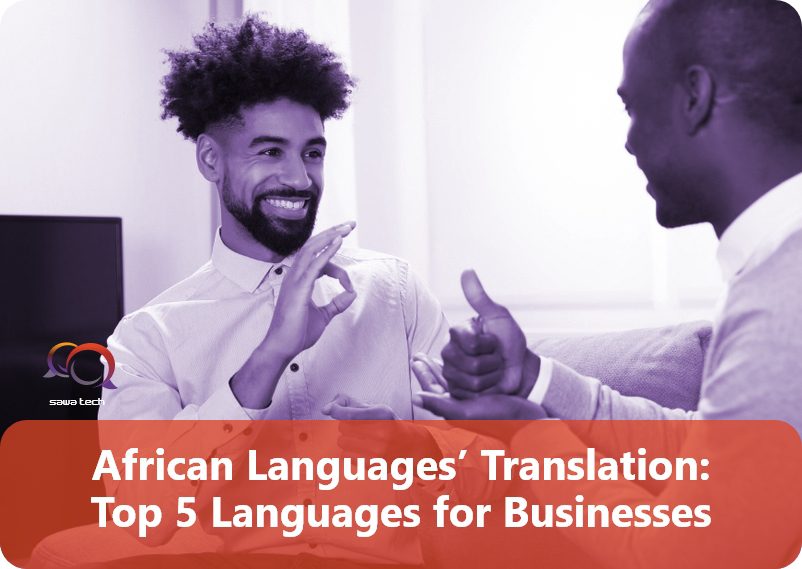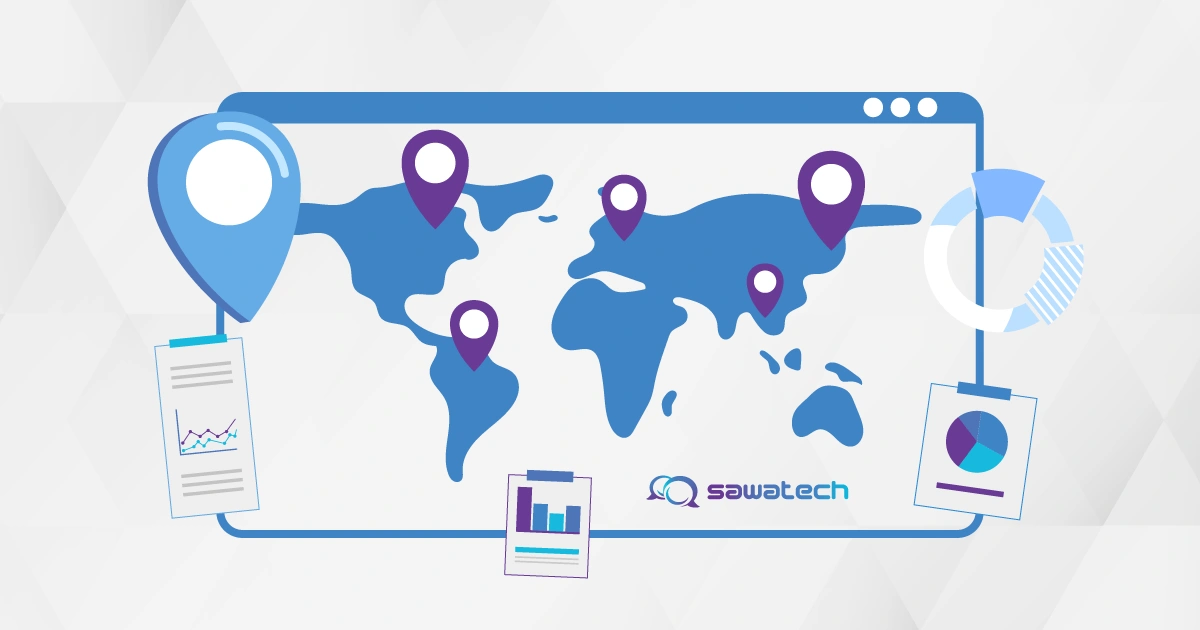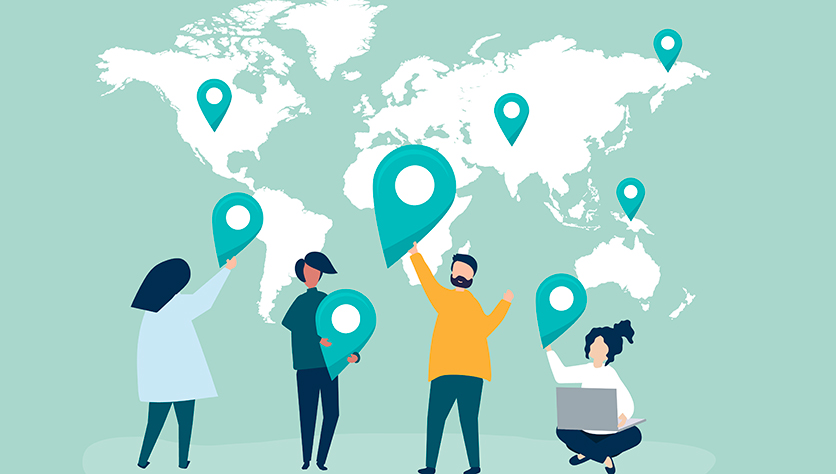- Have you come to believe that Africa is a country?
- Are you under the impression that people in Africa speak “African”?
- Do you think that there is only 1 language in Africa?
Hmmm, nope!
Africa is a vast continent comprising 54 countries, each with its own political, economic, and cultural landscapes – and languages.
Contrary to popular misconceptions, the majority of that population doesn’t speak a single language. In fact, Africa is home to a staggering number of languages—somewhere between 1000-2000 languages are spoken in Africa.
Just consider this: South Africa alone has 11 official languages!
If you are considering this rapidly emerging market and its bold business opportunities, you can’t afford to overlook African language translation. To truly connect with your African audiences, you need to embrace the rich linguistic and cultural diversity and establish genuine connections through translation.
In this article, discover the top 5 African languages that hold the key to your successful business expansion in Africa.
Table of Contents
- African Languages Translation: A Sea of Opportunities
- Top 5 African Languages: Facts, Reasons, and Challenges
African Languages Translation: A Sea of Opportunities
Africa is the second largest continent in both land area and population, with 54 countries of diverse cultures and languages. Currently, the population of Africa is estimated at 1,436,876,455 billion in 2023, which is about 16.72% of the world’s population!
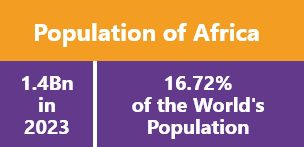
As previously mentioned, there are more than 1000 African languages with diverse cultures and traditions, including the fourth most spoken language in the world, with 11 Arabic-speaking countries on the continent.
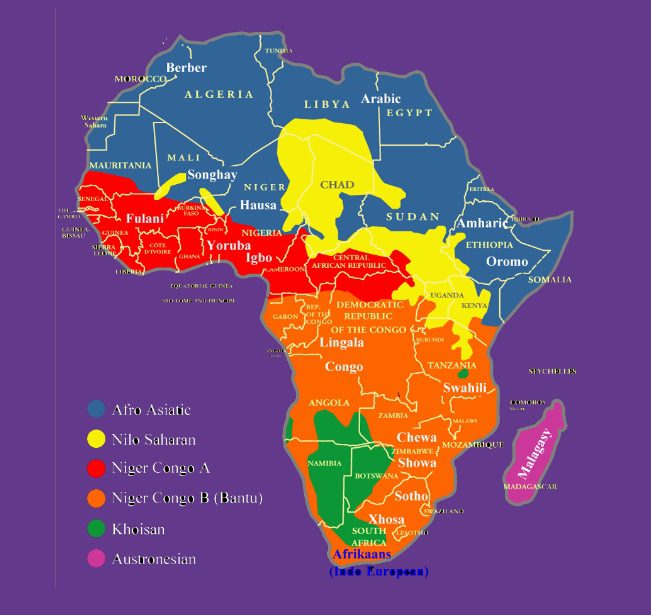
Africa is remarkably advancing on many levels and its economy is booming. In fact, Africa is home to 6 out of the 10 world’s fastest-growing economies. It is expected that Nigeria, South Africa, and Egypt will remain in the top 10.

In addition, the average annual GDP growth of Africa has consistently exceeded the global average, and it is anticipated to maintain a minimum of 6% growth until the year 2023.
As you can see, Africa’s impact on the world is remarkably increasing. That’s what makes it a great potential market for global growth in several industries.
Because we understand the great market potential of Africa, we’ve created this guide to the top 5 required African languages translation.
Top 5 African Languages: Facts, Reasons, and Challenges
Swahili
In African languages translation, Swahili comes as one of the most dominating languages among businesses.
Called Kiswahili by its own people, Swahili is among the 10 most widely spoken languages in the world and has over 200 million speakers. In fact, Tanzania alone has 80% Swahili speakers, and the rest is spread across 14 other African countries that include Kenya, Zambia, and Middle Eastern countries such as Oman and Yemen.

Let’s take a look.
Why You Need Swahili Translation
In essence, Swahili is considered a trade language because of its vast number of speakers, especially throughout Africa.
That’s why Swahili translation services are in high demand – to reach a wider audience in Africa and boost your business’s value in the local market.
According to Google Keyword Planner, 10,000 users per month in America use Google to search for English<>Swahili translation services.
Moreover, it is spoken as either a first language or a proficient second language on the east coast of Africa, covering an area that stretches from Lamu Island, Kenya in the north, to the southern border of Tanzania in the south.
In addition, the language’s widespread footprint mandates the translation of legal documents, financial statements, and other official documents for effective communication.
Challenges of Swahili Translation
- Swahili is a tonal language. As such, the words’ meaning is heavily reliant on tone and context. This creates a challenge for translators and might lead to fatal mistranslations.
- Swahili has highly specialized terminology in fields such as medicine and law. Such technical jargon isn’t commonly used in everyday language and may result in drawbacks.
To tackle such issues effectively, it’s essential to not only work with native Swahili translators who understand and can navigate the linguistic and cultural intricacies of Swahili but also with subject-matter experts who have in-depth expertise in the industry in question.
Amharic
Amharic is one of the top required African languages translation. Wondering why?
Well, Amharic is the most spoken language in Ethiopia and the second-largest Semitic language in the world. There are about 50 million global speakers of Amharic, both first-native and second-language speakers.
The Amharic language has significant meaning for those who speak it. Many Jamaicans consider Amharic a sacred language, and it is frequently used in religious practices. Also, the culture of its people is incredibly diverse and has a rich history.
And when it comes to the language heritage, it boasts an impressive literary tradition dating back to the 13th century. Additionally, Amharic is often used in politics and has been utilized in international organizations such as the African Union and the United Nations.
Sounds like a very interesting language, right? It is! But above that, there are many reasons you should translate to and from Amharic!
Why You Need Amharic Translation
Ethiopia is one of the fastest-growing economies in Africa, and if you aim to expand there, then Amharic translation services are indispensable.
Amharic translation is essential for any kind of business in Ethiopia; almost all legal documents in Ethiopia are in Amharic. Accordingly, all legal proceedings would require an accurate translation to and from Amharic.
Moreover, being able to communicate with Ethiopians in Amharic gives you an edge over your competitors.
In addition, many non-profit organizations operate in Ethiopia. So, for smooth communication with the locals and stakeholders, such organizations will need Amharic translation services.
Challenges of Amharic Translation
- One of the biggest challenges to translating into Amharic is its unique writing system, which originates from Amharic Fidel, one of the versions of ancient Ge’ez. Many software systems cannot read the Amharic language which overcomplicates the translation process.
- Another challenge in Amharic translation is that, due to its unique writing system as established earlier, there are no spell-checks, grammar-checks, readability indexes, or similar tools that aid the translator.
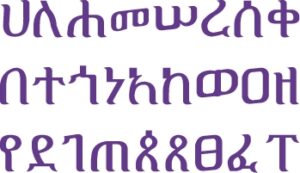
For these challenges, it is necessary to engage the services of an African languages translation agency with a multidisciplinary team comprising of Amharic native-speaking translators and software developers who can update your software to support the Amharic font.
Yoruba
Another language in the top Africa languages translation in businesses is Yoruba.
Yoruba is spoken by approximately 45 million people, and the majority of them are in Nigeria. In fact, Yoruba is one of the four main languages of Nigeria.
Like many African languages, the language is divided into 5 main dialects that are spoken by different peoples.
Yoruba is also a language of art. It has poetry dating back to the 14th century and is the language of Nollywood, the Nigerian film industry and one of the best film industries in the world.
The Yoruba language has a significant religious dimension as well, serving as the official language of the Ifa religion.
Why You Need Yoruba Translation
With Yoruba being one of the official languages in Nigeria and other West African countries, just imagine the vast audience that it could connect you with an audience of more than 40-million people!
So if your aim is to expand in Africa and reach a wider Yoruba audience, transcreating your marketing materials and campaigns, for example, into Yoruba will give you a competitive lead over non-local rivals.
Furthermore, Yoruba is widely used in legal documents and court proceedings. If you conduct any business in Nigeria or other African countries where Yoruba is the primary language, you will need Yoruba translation services for your contracts, documents, manuals, and other materials.
Moreover, you may need Yoruba interpretation services for court hearings to ensure effective communication.
Challenges of Yoruba Translation
- Although Yoruba is one of the top African languages, there are not enough Yoruba translators. It could be challenging to find a qualified translator in Yoruba and your target language.
- Another common challenge is text expansion when translating to Yoruba. For example, Yoruba, when compared to English, expands by 30%. Without having that concern in mind from the beginning, it could be a hazard to find out there is no space for the Yoruba text on your website, for example.
The only way to address this problem is to seek out an agency based in Africa. They will have a huge team of expert in-country Yoruba translators. Additionally, a translation agency is more capable than any other option to provide accurate translation while maintaining the professional formatting and design of your documents and websites.
With effective internationalization, they’ll be able to prepare your websites, apps, or any other software product to be translation-friendly and accommodate the changes in text length, and more technical changes, after translation.
Oromo
The Oromo language is referred to as “Afaan Oromo” by the Oromo people. It is the main language of the Oromos and one of the Cushitic languages.
Oromo is the third most spoken language in Africa. It also has a very unique writing system that is commonly known as Qubee. It arose in the late 1990s and is based on the Latin alphabet.
Oromo speakers across the globe are around 30 million. They are dispersed throughout the world, mostly in Ethiopia, Kenya, Egypt, and Somalia.
Why You Need Oromo Translation
Countries where Oromo is spoken such as Ethiopia are key players in Africa. They are involved in many global businesses.
If you’re doing business with Oromo clients, you’re going to need to translate documents, business meetings, and emails for effective communication.
In addition, Oromo is one of the two languages of all federal laws in Ethiopia. If you’re in the legal sector, Oromo translation services are a necessity.
Moreover, Oromo people are very interesting and have a lot of intriguing traditions. Many journalists, presenters, and filmmakers have focused on the Oromo culture. If you’re filming a documentary or writing a dialogue-driven article about their culture, you will need Oromo translation and interpretation services for efficient communication.
Challenges of Oromo Translation
- Oromo has several dialects that vary in form, structure, and grammar. The dialectal differences could be challenging for translators who don’t speak the specific dialect in question.
- The Oromo language is closely tied to the culture of Oromo and their traditions. As a result, there are often a lot of cultural nuances which might cause misunderstandings and mistranslations.
Arabic
Arabic is the fourth most spoken language in the world, with over 300 million speakers across the globe. It is the official language in 22 countries, 11 of which are in Africa.
It is a Semitic language that has two main forms: standard and colloquial Arabic. Colloquial Arabic, or Aamiya, has over 25 dialects across Arabic-speaking countries.
Arabic is written in a script that is read from right to left and is composed of 28 letters.
The language has a rich history and literary tradition, with works dating back to the 6th century. It is also the language of Islam and is used in the Quran, the holy book of Islam.
Due to its unique form, it has many sounds that are exclusive to the language and aren’t found in others, such as haa’ (ح).
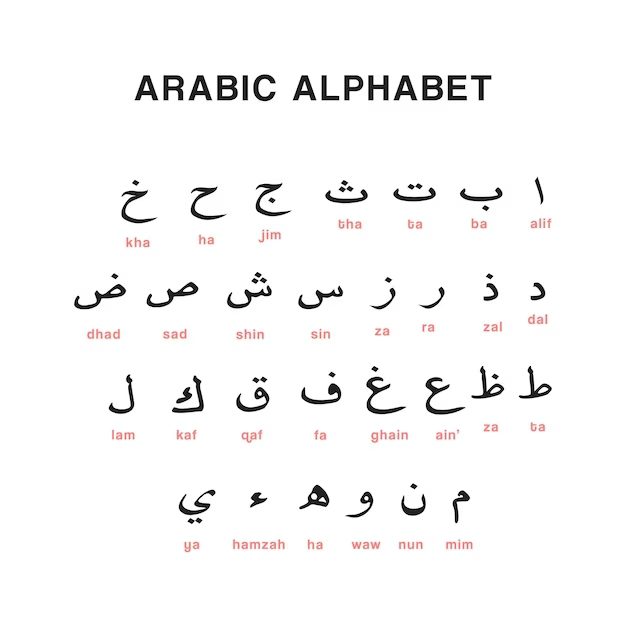
Why You Need Arabic Translation
As previously mentioned, the number of Arabic speakers is HUGE!
This makes Arabic-speaking countries a promising market for global businesses seeking to expand their market share.
For example, localizing video games into Arabic has allowed game developers to tap into a vast audience of Arabic-speaking gamers, resulting in a surge in demand for localized games.
This has presented game developers with opportunities to expand their reach and boost revenue. As a result, it is projected that the video games revenue in Arabic-speaking countries will increase to $6 billion by 2027, nearly doubling what it was in 2021.
Additionally, Arabic translation services are in high demand among those involved in politics, as some of the most influential countries in Africa are Arabic-speaking nations.
Challenges of Arabic Translation
- As previously mentioned, there are over 25 Arabic dialects, sometimes with major differences. For example, a native Arabic translator may not be able to translate the Algerian dialect, unless he speaks the dialect.
- Due to the uniqueness of the Arabic form, sometimes cultural nuances in Latin languages are lost in translation. For example, pun-based humor is very difficult to translate as puns have different forms in Arabic.
- When translating a website or mobile app, for example, there might be software issues as not all software is compatible with the right-to-left Arabic writing style.
To surpass such challenges, it’s essential to engage not only native Arabic translators, but also those who are proficient in the various Arabic dialects. In addition, You require a diverse team capable of localizing your content to ensure both accurate impact and technical soundness.
Sawatech: Your Top African Translation Agency
Sawatech is a translation agency based in South Africa. For 11 years, we’ve been delivering translation services in more than 120, specializing in African languages. We provide high-quality, multidisciplinary services, the fastest turnarounds, and cost-effective prices.
Based on our location, we have a wide range of African expertise in Swahili, Arabic, Yoruba, and much more!
If you’re looking for top-notch African language translation, look no further than Sawatech.

